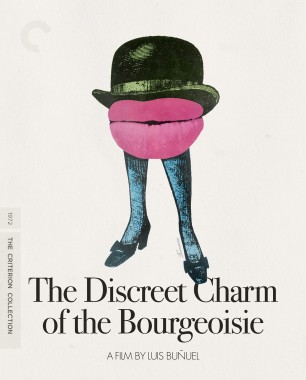
Peter Cowie’s Top10
Peter Cowie has provided commentaries for around a dozen Criterion titles. He is the author of many books, including Louise Brooks: Lulu Forever, from Rizzoli.
-
1
Ingmar Bergman
The Seventh Seal
I’d be hard-pressed to exclude this towering giant of a movie from any list. It’s a film that marked the lives and careers of so many directors and critics of my generation. The miracle is that it stands up so well. The style is classical, the acting impeccable, and the soul of the film throbs and nags at us across the decades.
-
2
Michelangelo Antonioni
L’avventura
When I first saw this at university, in 1960, I found it boring. Yet something made me watch it a second time that same term, and I fell under the spell of Antonioni’s mesmeric camera movements, his grasp of love and its heartaches, and above all the impassioned beauty of Monica Vitti. The film looks as freshly minted as if it had just been released.
-
3
Luis Buñuel
The Discreet Charm of the Bourgeoisie
Criterion has produced various Buñuel editions, and they’re all terrific. What I adore about The Discreet Charm of the Bourgeoisie is Buñuel’s rapier thrusts at the establishment, allied to an anarchic fury and surrealist imagination. I doubt that there’s a film in the collection that makes me laugh quite so much.
-
4
George Sluizer
The Vanishing
Sluizer is a Dutch director I met in my early twenties and instantly liked and admired. Finally, in 1988, he made really good with this suffocating horror movie—so bland on the surface, so naturalistic in its acting, and yet as ghastly as any catacomb in its study of crime and perversion. When Sluizer remade the movie for Fox, the whole story lost its relentless, claustrophobic grip.
-
5
Benjamin Christensen
Häxan
Scandinavian cinema has, I admit, obsessed me for most of my career as a critic. But all credit to Criterion for giving this bizarre and seductive silent film from 1922 the same loving attention as they would a new release by Richard Linklater or Mike Leigh. For extra value, the DVD includes an abridged version of the movie issued in 1968, with a sly offscreen narration by William S. Burroughs.
-
6
Marcel Carné
Children of Paradise
Another favorite of my vanished youth that withstands the test of time. It’s a huge, rolling pageant of a film, and Carné and Jacques Prévert get down and dirty with the Paris of the mid-nineteenth century, from which Arletty’s Garance surges up irrepressible and unscathed by the turbulence of life about her in the theater world.
-
7
Jean-Pierre Melville
Bob le flambeur
Melville has been hailed as the father, or godfather, of the French new wave. In fact, he was a classical filmmaker, telling his gangster stories in linear fashion, but with the highest quality control where acting and locations were concerned. Rain-slick streets belong, by some kind of divine right, to Melville, just as rivers belong to Renoir.
-
8
Yasujiro Ozu
Tokyo Story
While waiting for Late Autumn and An Autumn Afternoon, my favorite Ozu movies, I’m happy to choose Tokyo Story, immaculately transferred and bolstered with a two-hour documentary on Ozu, featuring all the old familiar faces. The extreme simplicity and limpidity of Ozu’s cinematic expression has no equal. Tokyo Story teeters on that exquisite knife-edge between stoicism and sentimentality.
-
9
Andrzej Wajda
Ashes and Diamonds
Seeing Ashes and Diamonds again after forty years, I realized how beautifully Wajda married his romantic flair and his unerring sense of history. Zbigniew Cybulski looks as timeless as Brando or Louise Brooks, his maimed glance between those sunshades accusing the postwar world of betrayal.
-
10
Kô Nakahira
Crazed Fruit
Another revelation to come out of left field just when you thought you knew the pantheon of Japanese cinema. Nakahira’s control of his material is apparent from first shot to last, as he charts the frantic duel between two rock and roll–generation youngsters for the sticky, sweaty affections of Mie Kitahara. Here’s a film that not only reflects the rebellious spirit of Japanese youth in the mid-fifties but also sports an intoxicating visual panache. It also features one of Donald Richie’s most engaging commentaries.














